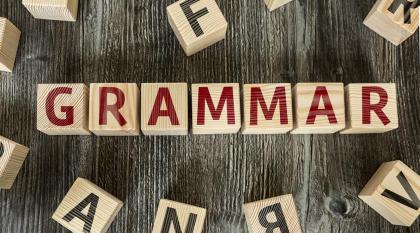Quick English - "You're" and "Your"
If you have been following our Quick English blog entries, then by now you will have come across homophones. Homophones are words, which sound similar, but are spelled differently and have different meanings.
Another example of homophones in the English language are the words “Your” and “You’re”.
You're
“You're” is the contraction of "you are". It is often followed by the present participle (verb form ending in -ing).
Examples:
You're a good friend.
Is that what you're wearing tonight?
I think you're being funny.
You’re running out of time.
I can't believe you're a Man City supporter!
Your
“Your” is a second person possessive adjective. It is used to describe something as belonging to you.
"Your" is nearly always followed by a noun
Examples:
What is your name?
Is this your book?
Your keys are on the table.
This is your desk.
What is your favorite food?
Can you complete these sentences?
1) __________ singing too loudly.
2) Is that ______________ sister?
3) __________ being childish.
4) I’ve made ______ favorite meal
5) _________ parcel has arrived.
6) I think ______ a great dancer.
Quick Tips
If you're able to replace the word with "you are," you should be saying “you're”.
Otherwise, the only option is “your”.



